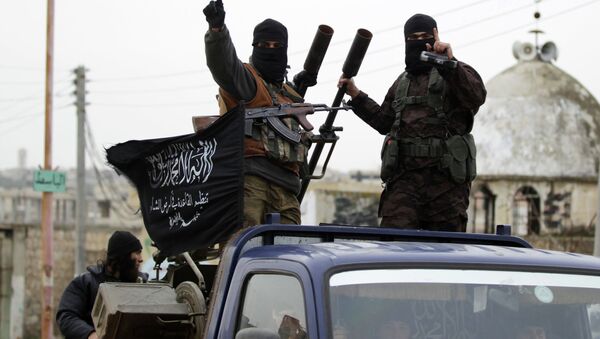WASHINGTON (Sputnik) — US intelligence agencies need to develop greater cooperation with their Russian counterparts in order to deal more effectively with al-Qaeda strengthening its positions in the Middle East and northern Africa, the Carnegie Council's US Global Engagement Initiative Director David Speedie told Sputnik on Monday.
“The chaotic conditions from Libya to Yemen are perfect breeding grounds for al-Qaeda,” Speedie said. “This is also a situation where cooperation and intelligence-sharing with Russia is critical, and that seems sadly deficient.”
Speedie argued that after the assassination of al-Qaeda leader Osama bin Laden in May 2011, the terrorist organization was “down if not out.”
“The Arab Spring was always a foolish concept, given that underlying conditions of rampant youth unemployment, hopelessness and official corruption persisted, and were made even worse by post-repressive regime lawlessness,” Speedie said.
The expert warned that the potential fall of the Syrian government and President Bashar Assad could further worsen the situation in the region, as Sunni extremists leading the Salafist movement could step into the void instead of the “moderate” opposition.
After the death of bin Laden’s, Ayman al-Zawahiri assumed the leadership of al-Qaeda. Groups aligned to al-Qaeda are currently active in several parts of North Africa and the Middle East, most prominently in Yemen, according to the US National Counterterrorism Center.




